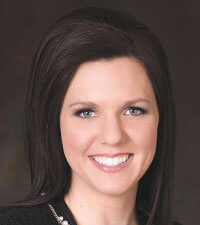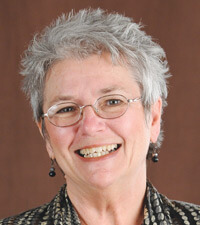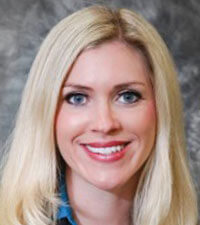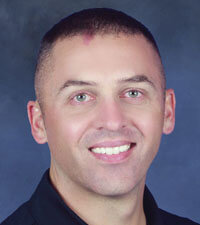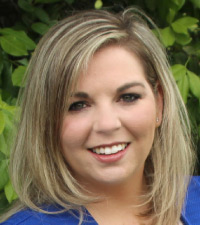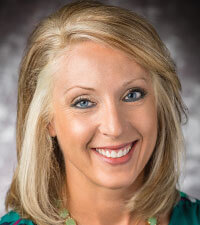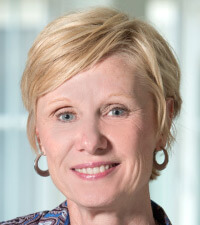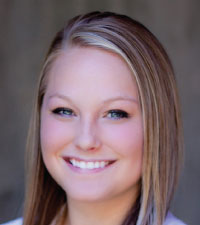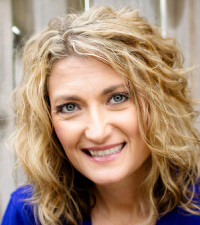Senior Health in Lincoln, NE – 2019
For seniors and their families, health is about much more than simply living longer—being healthy means living life to the fullest and staying active. Whether it is for a picnic, a baseball game, or a holiday celebration, summer is a great time for families to enjoy the sunshine and engage with the community. With the arrival of warmer weather, we encourage our elderly readers who are able to take advantage of the health benefits that come from spending time outdoors. Not only is the sun a good source of vitamin D, spending time in the sun regulates the body’s circadian rhythm, helping us stay awake in the morning and rest at night. To learn about other ways seniors and their families can stay healthy this summer, and identify health risks seniors are prone to this time of year, we reached out to local professionals in senior care.
A good place for seniors who want to increase their fitness is Right Foot Forward Fitness, which offers programs for all ages. As owner Jeff Madsen informed us, “Seniors, who we refer to as Masters Athletes, have unique needs from both a programming and a recovery standpoint, although the results they can obtain from increasing their fitness can be breathtaking! Masters Athletes have oftentimes reached a stage in their life where they desire to travel more, see more, just plain do more. Sometimes they find that they are starting to struggle physically to keep up with their plans and busy life. Walking long distances, up stairwells, and other things that weren’t challenging before start to become challenging. That’s where we can help. It’s very possible for seniors to increase their balance, proprioception, strength, and endurance, utilizing safe and effective exercises modified specifically for their needs.”
Balance and coordination are learned innately in childhood, but they are also skills that can be developed and strengthened. “At Right Foot Forward Fitness, we offer a Personal Training Track specifically designed for seniors. It starts out with a focus on balance and foot movement, both laterally and vertically,” explained Jeff. “We work on increasing proprioception (knowing where your body is in space), using specially designed drills. The exercises are not intimidating, but they are very effective! We have worked with folks who have gone from being unable to get up off the floor without first crawling to a wall or piece of furniture, and increased their strength and balance to the point where that is no longer necessary. From there, we can start working on dramatically improving movement patterns, abilities, and, most importantly, confidence. There’s nothing more gratifying than watching someone go through this process—you can see the confidence in their physical abilities building from week to week!”
Jeff also explained that physical training is often essential after a hospital visit to recover strength. “It can be difficult to return to a truly active lifestyle after health setbacks or surgeries (i.e. knee replacements),” Jeff said. “However, you don’t have to accept diminished physical capabilities as your ‘new normal.’ Find someone who will hold you accountable, has programming designed specifically for you, and understands your goals. As a senior or Masters Athlete at Right Foot Forward Fitness, you are capable of so much more! Believe in yourself and go for it!”
Along with exercise, Jeff noted that diet is key to a long, active life: “The most powerful thing seniors can do is combine a clean diet with exercise. Cutting out highly processed foods, consuming mostly whole foods in a sensible caloric range in combination with a well-planned exercise program will turbo-charge the results achieved.”
On that note, we also learned about a popular health trend—CBD oil. Taking or using a CBD enriched product can enhance your body’s ability to maintain balance and manage physical and emotional stress. It is also known to have many therapeutic properties and is particularly effective for maintaining focus, offering pain management and helps in recovery from conditions.
New to Lincoln, CBD American Shaman is dedicated to bringing wellness to the world through ultra-concentrated terpene rich CBD oil derived from all natural, high quality industrial hemp. It is legal in all 50 states and is 100% organic, gluten free, non-GMO Hemp, has no heavy metals or insecticides, and is batch tested using Ultra Performance Convergence Chromatography. CBD American Shaman is focused on the welfare of their customers and even provide a Compassionate Care program with discounts for those with chronic conditions, who are low-income, and for veterans.
“We have many elderly customers that have found CBD very beneficial, helping them with arthritis, anxiety, and much more,” Lance Schroeder informed us. “What makes CBD American Shaman unique compared to similar companies is we are a brick and mortar store. CBD oil is all we sale, so we care very much for the customer and we are very passionate of what we are doing. We also feel that our product which we feel is the purest and best hemp-based CBD on the market.”
According to Lance, their Proprietary Nano technology makes their product nine times more bioavailable to the human body than an oil tincture and the absorption rate is very quick.
“Our water-soluble 300 and our anti-inflammatory cream is the most beneficial, for not only our seniors, but for all of our customers,” Lance stated. “The biggest thing people need to understand is our body has an Endo cannabinoid system. CBD will connect with the receptors in our body to help bring that system back to homeostasis so then our body is able to start helping itself.”
Lance emphasized that most of the health related issues that he sees seniors struggle with are arthritis, back and knee pain, anxiety, depression, and Fibromyalgia.
“The advice I would give to these seniors is to come into one of our stores and get a free sample,” Lance said. “Most people will find some results before they leave. Positive effects of taking CBD is a more pain-free, stress-free life.”
While fitness training is generally useful at any stage of life, seniors may require more intense rehabilitation care to recover after an accident or hospital visit. An example of a facility that specializes in this type of care would be the Lancaster Rehabilitation Center, which recently was awarded the Pinnacle Quality Insight’s 2019 Customer Experience Award. The short-term rehabilitation program at Lancaster Rehabilitation Center starts with empowering the individual to become engaged in the healing process. The program’s goal is to help the individual get back to their normal routine in a quick and safe way. However, sometimes long-term care is needed when life’s challenges become too much to manage. Lancaster Rehabilitation Center has certified nursing assistants to help with taking a shower/bath, eating, dressing, using the bathroom, or simply walking, along with therapy services such as physical, occupational, and speech.
Staying active has many benefits, including diabetes prevention. According to statistics released by The State of Obesity, not only has the rate of diabetes risen steadily in the United States for decades, Nebraska saw a sharp increase from 2016 to 2017, consequently dropping us to 18th place for diabetes health by state. As Kim Kallhoff, the executive director of Carriage Glen, warned us, “Certain diseases, such as diabetes, are a major concern. That is why we are adding a nurse practitioner to do foot checks for our residents every other month. Diabetic patients should have a nurse practitioner observe and make sure there isn’t anything going wrong with their feet, and anything else effecting their ability to walk.”
For nursing options such as this, Carriage Glen partners with Hillcrest Home care. They will be implementing other types of care, including blood pressure tests, very soon. They are also going to be providing educational opportunities for the residents regarding the different types of health and wellness options they have available on property.
Obesity may be easier to identify, but rapid weight loss is also something to be wary of. Many seniors struggle with mental health issues, such as depression, which can cause them to eat less. Mental health issues are often a result of isolation or loneliness. “Keep your loved one in a place where they can be independent but engaged,” suggested Kim. “When people start isolating themselves, they might experience weight loss because they don’t want to prepare meals for themselves. Meals are a social event. Someone living alone may not be able to cook for themselves anymore. If you see rapid weight loss in a senior loved one, or if you see they are having difficulty doing some regular tasks or their finances, those are going to be red flags and it may be time to look into retirement or assisted living options.”
Kim told us how important it is for seniors to have social opportunities for community engagement without feeling forced or pressured: “At Carriage Glen, we have bingo and outings, like trips to the Lied Center. Living in a community where residents can interact and have the opportunity to attend social events, whether it’s coming down for a movie or for something like our Women’s Chat or Men’s Coffee, can have a positive impact on mental health. No one should be pressured to feel like they have to participate, either. That is why some of our events are very low-key.”
In addition to offering social events like Men’s Coffee, Women’s Chat, and an upcoming speaker series, Carriage Glen has opportunities for seniors to improve their physical health. “We offer yoga and tai chi, and we have a fitness room,” Kim added.
Kim pointed out that most of the residents at their 55+ community remain very active and independent, some continuing their careers and others actively volunteering in the Lincoln community. Since last year, Carriage Glen has offered a month-to-month lease.
“What sets us apart is the building itself is unique. The size of our community is perfect—it’s not too small, not too big,” concluded Kim.
If you have a senior loved one who experiences an accident that affects their daily routine, but it may not be serious enough to require rehabilitation care, there are in-home services available. All of the chores and tasks that are necessary to run a household are difficult enough for a young person in good health, but when someone’s health is compromised, or if they are aging and experiencing physical or even mental limitations, it is very hard to keep up with simple daily chores. Hiring home care can help with the basics that an individual can no longer handle themselves.
“Home care services provide an array of help in many categories,” Natalie Leon with Visiting Angels shared with us. “They can aid in simple housekeeping, like cleaning, dusting, and doing the laundry. Hygiene and grooming are fundamentals that should be kept up with for a person’s health and dignity. A home care service provider can assist in this regard, which can boost a patient’s morale.”
Getting to the grocery store or pharmacy, or running simple errands can be a daunting task for an older person. Sometimes it is necessary for them to have help if they can no longer drive or move around independently. Home care caregivers can help them with these errands, including carrying in the bags and doing some meal preparation as well.
“Many times an individual is capable of living on their own in their homes, but it would not be possible with home care to help with their miscellaneous tasks,” Natalie stated. “Visiting Angels provides experienced caregivers to people in their homes to aid with their daily chores. Visiting Angels has caregivers that offer loving companionship, assistance with hygiene assistance, light housekeeping, ran errands, and more.”
To expand on the scope of in-home health care, we talked to Hayat Ibrahim with Graceful In-Home Healthcare. According to Hayat, for families concerned by health signs like rapid weight loss or accidents, in-home care addresses a variety of needs. “Our services vary from simple chore duties to a wide range of other personal/healthcare-related services, including transportation to and from appointments, meal preparation, personal hygiene assistance, and even flight companionship for those who cannot travel on their own. We employ daily caregivers and CNA’s as well. What makes us unique in this field is the wide range of services that we offer to our clients. Our staff can work during the regular work week, on the weekends, and even overnights for those who need us there. They can range from one hour to twelve hour shifts depending on the client’s needs.”
Hayat added that, as certain conditions become more common with age, having help can make all the difference: “Graceful In-Home Care clients have a wide range of health care needs, however, we commonly see osteoporosis, arthritis, and dementia affecting the seniors that we serve. Our advice and recommendation for these common health care problems in the senior community include exercise, proper nutrition, taking extra safety precautions while doing chores and outdoor lawn or garden care, and lastly, to not be afraid to ask for help.”
Hayat believes seniors can be proactive and take their lives into their own hands to promote their health and independence. “Some lifestyle adjustments that seniors can make that can have a positive impact on their health and wellness include taking care of yourself both physically and mentally. Simply taking walks regularly or attending a local gym will make you happier and can help reduce the risk of certain diseases. Taking care of yourself mentally is also essential to our overall health. Make sure you set aside time to go to your church, to attend family functions, and to simply read a book and enjoy a sunny day,” Hayat advised.
A tragic aspect of the aging process is the feeling of loneliness and isolation, which may trap an individual in a cycle where things steadily grow worse. As the director of training and staff development for Bridge to Better Living, Robbie Nathan describes this as a “domino effect.” This is why Robbie is an advocate for consulting services that exist to serve an invaluable role in connecting seniors to the resources they need. “I want seniors and their loved ones to know Bridge to Better Living offers a transition service to assist and guide them through the difficult navigation of senior living,” said Robbie. “There are many options to consider—independent, assisted, memory assisted, long-term care, etc. Attempting to manage this decision alone without any experience is extremely difficult, stressful, and confusing. It is emotionally healthier to have an expert such as the consultants from Bridge to Better Living ready and on call to respond to fears and inquiries rather than risk choosing a life-changing option without realizing the consequences of a poorly made decision.”
The time to call Bridge to Better Living is when medical appointments, social activities, and family events become difficult for you or your loved one to schedule and attend. Another sign is an increased reliance on others for help in order to remain at home. Finances could also be a concern. Poor decisions made to donate to each request or falling for scams targeting seniors drain bank accounts quickly. Financial advisors are recommended to prevent seniors out-living their money. It is wise to make financial plans for the future sooner rather than later. There are many financial resources to access when assisted living or a higher level of care is needed. Bridge to Better Living is a reliable source to call on regarding those resources. They are able to discuss with you the variable options and share their contact information.
Robbie emphasized the importance of socialization for seniors this way: “Seniors who are healthy are more positive and have improved attitudes toward maintaining an enjoyable quality of life. Exercise is always the first recommendation, and physical therapists and geriatric physicians have many options for those who are mobility challenged—engage in discussions with peers; make new friends; attend church; be a constant attendee at family events; pick up the phone and call others; read books, periodicals, and magazines; stay interested in the world. Most of all, do not ever hesitate to call and consult an expert such as Bridge to Better Living. There is no cost to the client and the conversation had with us is one many wish they had made sooner. Bridge to Better Living is always there and a ‘forever’ friend.”
Because consulting services offer advice to seniors, they are an important part of the process for a wide variety of different needs. “Bridge to Better Living is important in almost every stage of senior health care,” stated Robbie. “Our services assist and help families and seniors to make decisions for a transition to senior living communities. These moves are experienced by people who are independent, living at home with supplementary health care, or are already living in a senior community and need a different level of care.”
Bridge to Better Living encourages planning ahead, but also realizes life happens and immediate assistance may be needed. “We are unique from other transition services,” explained Robbie. “Bridge to Better Living’s philosophy of Placement with Passion means our services are about the client first and foremost. We are with them from the first consultation and by their side during tours. The relationships we build continue even after the move. Bridge to Better Living is not about technology, it is about real people.”
Senior advisors will have many answers for you, but there are some matters that require legal counsel. The Law Office of Christine Vanderford, PC, LLO specializes in estate planning. Christine believes that preparing your last will and testament, and understanding the different legal options available, is a right that all seniors should exercise to protect their property and savings. She also advises doing so before illness strikes or worsens. This is especially important for seniors who are at risk of suffering from Alzheimer’s or dementia.
Beth Friesen, owner of Oasis Senior Advisors, is a Certified Dementia Practitioner and, as of this month, is a Certified Alzheimer’s Disease and Dementia Care Trainer. Like many professionals, she is concerned by the risks loneliness and malnutrition create for seniors. “Some of the biggest issues we see are social isolation and lack of nutrition,” said Beth. “Often, the aging process negates the individual to living at home with little more than the television to keep them company. Cooking may become more of a challenge, or it may just not hold the same appeal as it once did. Therefore, the combination of social isolation and lack of nutrition equate to a lowering of the body’s natural immunity making them more susceptible to illness as well as depression.”
Beth added that many seniors are surprised by how much happier they feel after making the choice to move, given that being part of a community protects seniors who are at risk: “While most people you ask would say they would prefer to live in their own home, numerous scientific studies have been done that would indicate that residing in a senior living community can actually increase both the quality of life and add years to your life. In fact, as many as eight years! However, even while living at home, it is very important to continue to be social and interact with your peers and have other sources of social stimulation. In addition, making every effort to eat a variety of fresh foods, including a plethora of fruits and vegetables and adequate protein, also remains of paramount importance. There are creative ways to go about this, if a senior does not wish to cook for themselves. We are happy to have a discussion with anyone about ways in which we can help!”
When families procrastinate until a health crisis forces them to consider a move, they add risk and stress to their own lives. “So many people are unaware that senior living advisors exist and that the service is free!” exclaimed Beth. “Navigating senior issues can be overwhelming and stressful. As a result, people simply ‘put it off’ until there is a crisis, which often results from a drastic change in health.” She also emphasized that advisor services include much more than helping seniors find a living community. They also assist with estate planning, Veteran’s benefits, long-term care insurance, right-sizing, in-home care providers, as well as answering Medicare and Medicaid questions.
“Our first priority is to advocate for the senior and their family to ensure that their needs are met throughout every step of the process insuring a smooth transition,” Beth concluded. “I believe what makes Oasis Senior Advisors stand out is the unique combination of healthcare and legal backgrounds our team possess.”
With lack of engagement being such a concern for seniors’ health, advisors can also point you in the direction of a caretaker who understands how to appropriately combat issues associated with isolation. Like Beth noted, sometimes seniors are left with nothing but a TV to keep them company throughout the day. Research has found that television viewing time is negatively related to executive functioning, which are a set of processes that let a person plan, organize, and complete tasks. So, instead of watching TV, the caregivers at Home Care Partners of Nebraska ask you, “What do you want to do today?”
“Our caregivers use a person-centered approach when it comes to activities,” explained Karla Frese, managing partner of Home Care Partners of Nebraska. “This benefits the families we support by increasing participation in activities that improve executive function while providing enjoyment of daily life. Inspired by the Montessori philosophy, our team meets people where they are and uses creativity to find purposeful, relevant, and meaningful engagement.”
“If you are caring for a family member, we encourage you to start documenting their life story and how he/she wants to live,” Karla continued. “What are their needs, strengths, goals, life history, and preferences? With more information, our care partner teams can create individualized care plans that address identity, security, and provides meaning and joy.”
Karla also mentioned that when looking for activities of engagement, Home Care Partners of Nebraska encourages utilizing tangible, functional, and aesthetically pleasing materials that are from real life. The goal is to emphasize auditory, visual, and tactile discernment—look for opportunities that involve physical, mental, and psychosocial wellbeing. “We focus on what a loved one ‘can’ do and modify the process or environment if needed,” Karla said. “For example, there are some parquetry blocks patterns that are very complex, and some that are simple we adapt to each person we visit. Some of our clients love to bake or cook with our caregivers, this is a multisensory activity that has physical, mental, and psychosocial wellbeing benefits. Together, you can tour the town, go to the museums, Sunken Gardens, Memorial Stadium, or just get ice cream. We ask you, (What do you want to do today?) We are mindful of the environments that our families live in and we look for ways to flourish.”
A dimension of things that can add to a senior’s sense of isolation and depression is difficulty communicating with families and friends. Hearing loss is a common culprit. In addition to offering hearing aid technology, the Nebraska Hearing Center also offers free hearing examinations to determine extent of hearing loss. As the owner, Dr. Leslie Frank is all too familiar with the harm done by hearing loss. “Hearing healthcare is a significant issue for seniors,” stated Dr. Leslie. “As we age, our hearing changes and worsens. Much like we start to need reading glasses in our 40s, a great number of individuals in their 60s (and younger!) begin to need hearing aids. According to a well-documented Johns Hopkins study, there is a link between hearing loss and memory. It’s important to manage hearing healthcare just as we would any other medical need. In addition to hearing evaluations, the center also offers consultations and demonstrations at no charge. Even if you are simply seeking baseline information to know where you stand, we are pleased to get you started on the road to good hearing healthcare.”
With the benefits of moving into a new community comes the challenge of hearing group conversations in a new environment. “Many seniors will transition from independent living to assisted living at some point, so it’s important to be aware that hearing needs often change with such a move,” Dr. Leslie advised. “People go from quiet, controlled, one-on-one conversations at home, to group dining and activities in assisted living. Those circumstances play a significant role in how we hear, understand, and interact with others. Sometimes a simple adjustment to existing hearing aids does the job, other times we can discuss appropriate technology to meet the needs of the current situation.”
As the owner of Care Consultants for the Aging, Kyle Johnson agrees that social isolation is a significant risk for seniors, and finding an advisor is one of the key beginning phases for families exploring their options and learning about senior care. “Clients that we begin services with are typically just starting to notice the difficulties of living independent in their own homes, and are starting to need assistance with their ADLs (Activities of Daily Living),” he pointed out.
Kyle concurs that an isolated, indolent lifestyle can lead to many physical and mental health risks: “Seniors need to stay active, both mentally and physically. Watching TV and sitting in a recliner all day doesn’t lead to a healthy lifestyle. Getting involved with a local senior center will help with socialization, and going for short walks will help to maintain leg strength. The saying ‘use it or lose it’ is something I commonly say when working with families who are noticing a recent decline in their parent’s health.”
Kyle firmly believes that when families procrastinate on considering the need for senior care, they only add unnecessary financial and emotional burden to their lives. “We typically see seniors wait too long to accept help due to fear of losing their independence. Adult children are noticing these signs before the senior does, but hesitant to get outside help for fear of upsetting their parents. This is a dangerous scenario of waiting for the ‘major incident’ to happen before getting help in the home. Typically, this results in a hospital stay that could have been avoided with a couple helping hands,” explained Kyle.
“We are the largest home care registry in the State of Nebraska,” Kyle continued. “This model is different than any other home care provider available to clients. All of our caregivers are licensed CNAs and work as independent contractors for their clients. Before any caregiver is allowed to work with a client, they are run through all background checks, criminal history reports, work authorization in the United States, CPR certified, must carry their own professional liability insurance, and are bonded through our company. Our rates are the most competitive in the industry and have the ability to start services with no upfront deposits or hourly minimums.”
To learn more about the resources available for senior health care, we spoke to Stephanie Witt, who just started serving local senior residents and their families through her new business, Guiding Hands for Senior Transitions. When we asked Stephanie how Guiding Hands fits into the senior healthcare continuum and what makes her offerings unique compared to similar businesses in the industry, Stephanie said that she looks at herself as the “glue” no matter what transition a person is in. “I help connect people with the resources they need to prepare for each transition and close the loop,” Stephanie explained. “Many times, with each new service or need, you start all over with the same questions and answers. I can save people time by connecting the needs and answering those questions, fill them in on past and present, and move forward. I’ll even attend doctor’s appointments with you or your senior loved one to help with any questions that arise. I’m an advocate that will continue to be there even when one service stops and another starts. I’m also here if someone isn’t happy with circumstances. Let me help brainstorm options. I’m a licensed nursing home administrator, I’ve served as an assisted living director, and I’ve worked in home health and hospice, as well as hospitals. I have the experience to be the advocate to families and their loved ones.”
“I offer a Life Planning session to identify what you or your loved one is prepared for as far as legal documents, insurance options, and health concerns, and choices within the best and worst case scenarios,” Stephanie continued.
“This shows me what other actions we need to take in order to avoid any surprise when it comes time to make hard decisions. My clients will already know what the answer it is before the storm hits. If they need me, I already know their case and am up to date as I make that contact to look for changes and needs monthly.”
Every person has their individual needs, and health-related issues can be so complex. That’s why Guiding Hands offers to attend provider appointments and meetings in care facilities, as well as hospitals, which is a unique service that Stephanie offers.
“The top two reasons seniors end up in the hospital is due to medication mismanagement and falls,” Stephanie informed us. “If we can get prepared before the catastrophic events, we have nurses that will do home visits to assess their safety and relay back their recommendations or confirm they are safe within their living environment. The caring nurses will also review the doctors diagnosis and review resources that can provide what they’ll possibly need in the future. It’s all accessible on our portal for families to relay back to at any given time, as well as our professional guidance when it is time for the next step.”
Open your mind to have the difficult conversations about health decline, financials, code status and living will, bill paying, funeral plans, etc. The more you know, the less feelings of fear, anxiety, denial, grief, and loss you will experience. These conversations and the preparation for the future will lead to a peace of mind for everyone.
Senior Living Community Options
Immanuel—Immanuel is a leader in senior living, care, and services throughout southeast Nebraska and central Iowa, offering living environments, ranging from independent retirement apartments to assisted living, memory support, and long-term care. They also offer Nebraska’s only Programs of All-Inclusive Care for the Elderly (PACE®) provider with Immanuel Pathways. PACE offers a complete health plan for eligible individuals allowing seniors to remain living independently in their homes for as long as possible.
“We’re seeing a significant shift in the industry away from local providers,” Jennifer Knecht, vice president of marketing and communications at Immanuel, told us. “Many senior and retirement communities in the area are being run by for-profit investors who operate chains all over the country. This causes a sharp disconnect between resident needs and profit-driven corporate decisions. Immanuel, on the other hand, is deeply rooted in the state. We were founded in Nebraska over 131 years ago and have always been committed to a not-for-profit mission. What this means for residents and participants is they know that significant resources are invested directly into enhancing programming, updating our communities and centers, and supporting other like-minded community organizations. It’s the difference in knowing decisions are being made in the best interest of those who matter most—seniors.”
Of the offerings at Immanuel, their new Thrive by Immanuel Wellness Centers and Day Spas are especially beneficial for seniors. Amenities and programming are focused on wellness of the whole person—mind, body, and spirit. Educational courses, social engagement, spiritual support, and state-of-the-art wellness centers are all driven by Thrive principles like creativity and life-long learning.
“We’re also using technology to better connect families with their loved ones,” Jennifer added. “We’re partnering with programs like LifeLoop, an app where families can stay up-to-date on activities, events, and support plans. In addition, an on-site digital resident portal will soon be unveiled at some of our communities, helping residents stay connected and engaged. Above all, we’re listening. Residents want more options for health and wellness, they want more options for dining, more ways to connect with each other and with their families. With new dining venues, certified wellness staff, and upgraded amenities, Immanuel is listening and making it happen.”
According to Jennifer, when she asked Immanuel’s most active residents their “secret,” they found the key to aging well is staying involved and staying open to new opportunities. “All were extremely optimistic about aging because they weren’t afraid of physical limitations getting in their way,” shared Jennifer. “One resident bikes every day with a 55+ cycling group; another plays in ping-pong tournaments; and yet another volunteers at the Henry Doorly Zoo. Our residents encouraged us to say ‘yes’ when opportunities come up.”
We’re finding more and more, seniors are choosing to live in 55+ early because of these social and wellness-driven amenities.
The Waterford Communities—While assisted living can accommodate seniors who simply need help with day to day activities, Alzheimer’s and dementia present special challenges and caregivers often have to provide spaces designed with these challenges in mind. Healthcare providers and architects will work together to design spaces which minimize risk of injury and confusion for residents. For example, The Waterford Communities includes three communities in the Lincoln area, two focusing on assisted living and one, The Waterford at Wilderness Hills, focusing on Alzheimer’s and memory care. Tranquility rooms provide a peaceful space for residents away from frustrating noises or distractions, and activity sensory rooms are used to create a calming environment with activities which use all five senses.
Legacy Retirement Communities—As director of clinical operations for the Legacy Retirement Communities, Barb Scott specializes in gerontological nursing. She says memory issues are one of the major contributors to health risks and stress for both seniors and their families.
“Oftentimes, people struggle with a parent or loved one who is having memory issues,” Barb addressed. “It’s easy to get frustrated with someone you’re close with because you think they should ‘know better’ or they’ve ‘never acted like this before.’ Unfortunately, the disease process of dementia and Alzheimer’s is unpredictable. The best way you can support a loved one with memory issues is to educate yourself as much as possible on the disease and what ways you can help them most effectively. Think about quality of life for them as well. Is it ideal for them to stay in the home all day by themselves watching TV to keep them ‘safe’ or could you offer them a better, more enriched day by involving them in day services offered by memory care communities and eventually having them live in a memory care community? Memory care staff are specially trained to handle all behaviors associated with cognitive decline and offer an unbiased approach to caring for a loved one.”
In Barb’s opinion, there are four key considerations for senior health, and a good living community should consider all four. “Studies consistently show that it is wise to pay attention to several areas of well-being to live a quality, fulfilled life. Legacy Retirement Communities structures all activities and outings to focus around four areas of well-being: mind, physical, social, and community. This way, residents have an opportunity to keep themselves active through whatever they choose. Socialize, keep moving, stay involved and you’ll be sure to keep your brain sharp and be at your best.”
Legacy Retirement Communities offers independent, assisted living, and memory care options. Each of the locations has an LPN 24/7, which is not standard in all retirement communities. Knowing that a nurse is available 24/7 for both independent residents and assisted living residents gives the residents a peace of mind.
An additional service Barb wants seniors to know about is Legacy Plus, designed for residents who live independently. “This is a scheduled service in which residents pay a small fee for certain assistance such as bathing, laundry, bed making, walking your dog,” explained Barb. “If more help is needed, we offer Legacy Home Care. Legacy Home Care is the typical setup that one would expect from a home care company, but it is our Legacy employees helping our independent residents in their own apartments.”
Fallbrook Assisted Living and Memory Care—Virginia Cole, executive director of Fallbrook Assisted Living and Memory Care, believes that healthcare should take into consideration the physical, emotional, and spiritual well-being of an individual as a whole, particularly for seniors experiencing memory issues. This is exactly what they do at Fallbrook Assisted Living and Memory Care. “It’s really about maximizing opportunities for seniors with the memories they still have, and helping them create new memories throughout the day,” said Virginia. “We want to help them find ways to connect with family. What makes us special is this is built into the physical environment. There are lots of things designed to promote memories and begin engaging conversations with the staff and families. There are a lot of tools in our signature program that focus on memory and engagement.”
In addition to nurse practitioners for routine checkups, Fallbrook Assisted Living and Memory Care is less than a quarter of a mile away from the Fallbrook Clinic.
Virginia noted that family and friends are a critical safety net for seniors facing the challenges of memory loss: “I think the most important thing for someone starting to experience some memory issues is for their families to stay in close contact, because the family can recognize subtle changes that indicate they need help. When they are in their own home, there are really simple thing that are quite powerful. Make sure you don’t have throw rugs, because those are real trip hazards. Sometimes when people are not used to living alone, they are not making sure they are eating properly. It’s really important for seniors to stay connected and engaged with the community at large, not just their own families. So if families can find ways to facilitate helping their senior family members can still go to church, their book club, anything that can support their emotional and spiritual development. When seniors are not able to move about and participate in their community, that’s when depression can set in.”
Since family and community are critical, Fallbrook Assisted Living and Memory Care ensures that their residents have ample opportunity for community engagement.
“Seeing their friends, playing cards, all those things can help you stay mentally sharp…It’s important to keep that person going as much as possible. Rest and alone time are also important, of course, but you don’t want them sitting home alone all the time,” advised Virginia.
Sumner Place Skilled Nursing & Rehabilitation—Sumner Place is a skilled nursing facility that offers rehabilitation, long-term care, respite care, and memory support services. As the admissions and public relations coordinator for Sumner Place Skilled Nursing & Rehabilitation, Megan Herter explains that specially designed spaces and programs can not only reduce the frustration experienced by individuals with Alzheimer’s and dementia, they can also help impact patients for the better: “Sumner Place uses Buddies Forever, which is a comprehensive dementia program. These techniques and skills, such as getting down below eye level, using simple statements, and endorphin boosts, create a foundation for person-centered care. A program that we are also certified in is Music & Memory, which taps into the long-term memory, an area of the brain unharmed by dementia. Selecting the appropriate music for each resident triggers pleasurable emotions from their past.”
“Nestled in the cozy neighborhood in Lincoln, what sets Sumner Place apart is our culture and home-like environment,” Megan said. “When visitors and family members walk through our doors, they always comment how welcoming and inviting they feel. We hear people say, ‘It feels different.’ We feel different because we are different. People learn from interacting with us that they can trust us to be who we say we are and do what we say we’ll do.”
Services at Sumner Place include their restorative program, therapy programs, full time dietician, daily spiritual services, morning rounds by their medical director, social outings in the community, and their Dream Weaver partnership. They also host special annual events such as Senior Prom, the Dog Pageant, and the Sumner Place Picnic. In addition to serving seniors with more active lifestyles, Sumner Place also offers 24/7 medical surveillance, which includes medication management, out-of-character response interventions, safety awareness, fall preventions, proper hygiene, and healthy nutrition.
“We create a living environment that radiates love, dignity, and safety while encouraging personal independence,” concluded Megan. “Whether it is sleeping in until ten o’clock in the morning or taking a resident to a movie they want to see, we at Sumner Place focus on personalized care.”
For additional guidance, the Lincoln Housing Authority prides itself on providing “more than housing.” This becomes evident at Burke Plaza, Crossroads House, and Mahoney Manor. The more than 270 men and women who live in these buildings have access to a wide variety of social and personal support services through the Resident Services Program and Congregate Housing Services Program.
The foundation for the Resident Services Program is the Resident Services Specialist at each building. Their job is to provide general support to the residents and to offer a wide range of activities and programs to enhance the overall quality of life at each building. They coordinate a monthly newsletter and calendar which lists activities and events throughout the month. Those activities include pot-luck meals, garage sales, wellness and health activities, van trips for shopping and recreation, soup suppers, games, tail-gate parties, movie nights, special events and holiday celebrations, and other activities too numerous to mention.
Lincoln Housing Authority has enhanced the Resident Services Program through an agreement with the LIFE Office of Aging Partners. Through this agreement, the Congregate Housing Services Program brings the services of two full-time social workers to the building. These social workers are able to work with individuals who need additional supportive services such as case management, personal care, house-keeping assistance, and transportation.
In regards to selecting the level of care your senior loved one needs at the stage of life they are at, and the condition of their health that they are in, Aubrey Paulsen encourages families to reach out to Tabitha with any questions they have. As the baby boomer generation retires at a record rate of 10,000 a day, Aubrey anticipates quality senior care services will grow more crucial to American families.
“Our friendly caregivers will listen, learn and provide expert guidance to best fit your unique situation,” Aubrey said. “Starting with Tabitha will ensure you make informed decisions. Our range of services allow us to seamlessly work alongside you as your needs evolve. For example, for seniors living independently, some services are meant to help with activities of daily living.”
Specifically meeting health needs, Tabitha’s professional home health care teams provide customized support, including rehabilitation therapies, medication management, skilled nursing care and other medical services based on your individual condition or disease process.
Tabitha Home Health Care supports clients with:
- Nursing care specializing in cancer, heart conditions, orthopedics, respiratory conditions, IV therapy, wound, foot and diabetic care, and post-surgery care
- Physical therapy to improve mobility, strength, activity tolerance and fall prevention
- Occupational therapy to improve self-care skills, mobility and coordination
- Speech/language therapy to improve communication, memory, cognition and swallowing
- Dietitian instruction to improve nutrition and diet as ordered by your physician
- Personal care and bathing assistance
- Social work and future planning
Every care plan developed by Tabitha Home Health Care begins with a home safety evaluation. During this process, the living environment is assessed for risk factors from mobility/fall hazards to nutritional needs, hygiene processes, emergency care access, and more.
Aubrey also brought our attention to in-home technology that can be used to address health concerns for seniors: “Tabitha is proud to offer industry-leading health care technology at your fingertips to help seniors stay healthy and safe at home, wherever they call home.
VoiceCare emergency response supports independent living with a secure, reliable, and live voice-to-voice system. Clients simply use a personal activator button that, when pressed, will contact designated responders such as family, neighbors, or emergency response personnel.
Telemonitoring offers a convenient service that regularly collects and transmits vital signs (blood pressure, weight, oxygen level, and pulse) through a secure, cellular modem as frequently as our clients and physicians desire. When vital signs are taken daily, irregularities can be caught before they become full-fledged problems.”
Understanding home health care choices and parameters is the first step to regaining your independence and enjoying life again. Start with Tabitha to get connected with the resources that best fit your own or your loved one’s aging journey.
Getting outdoors, participating in your community, and staying connected to your family, friends, church, and social groups are all ways for seniors avoid isolation and reduce the risk of health problems. Speaking to a professional can help your family consider senior living options and map out the steps to take to keep living a healthy and engaged life here in Lincoln.




